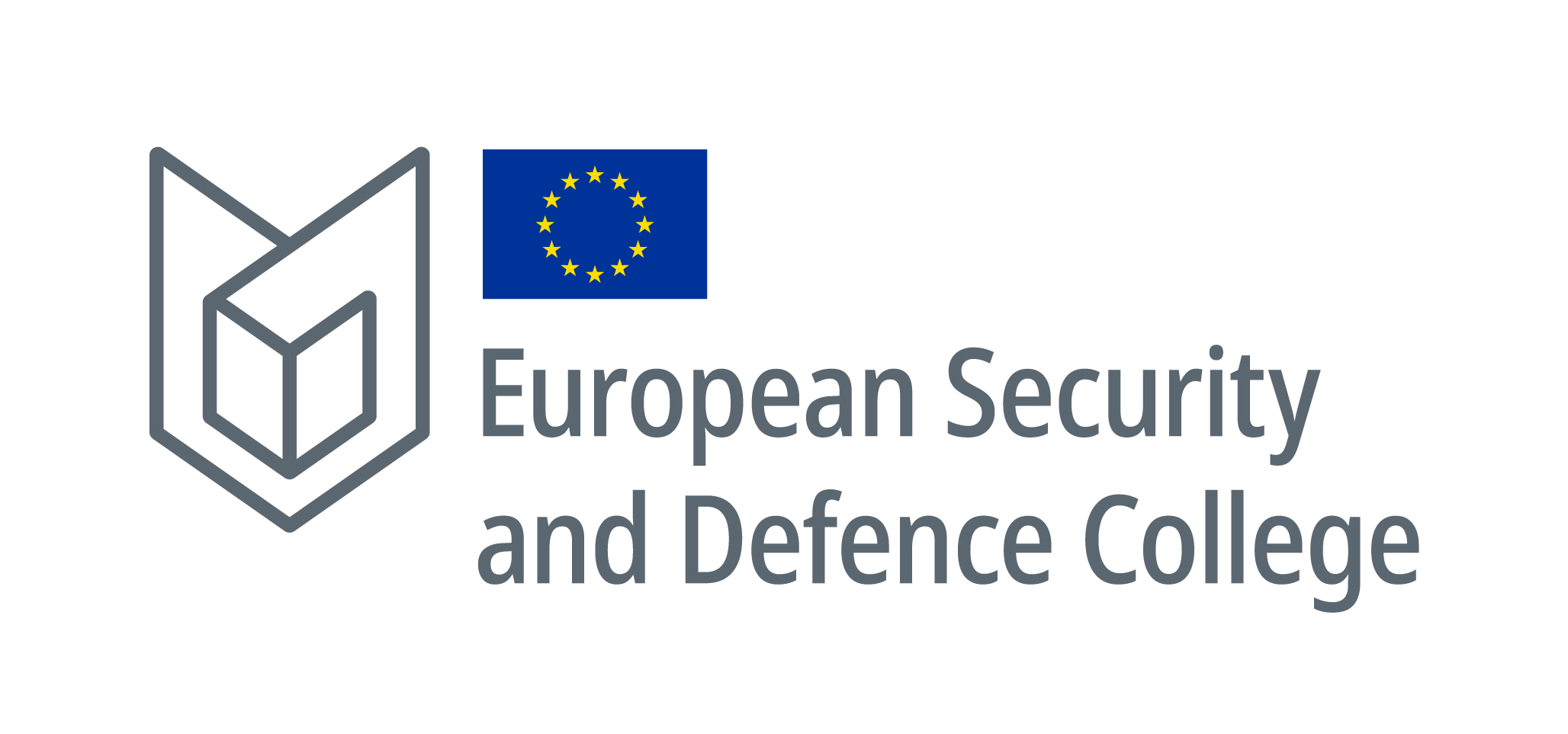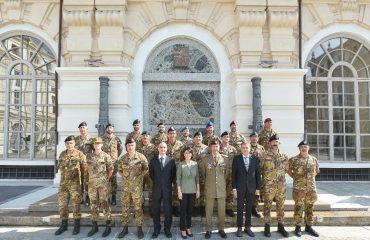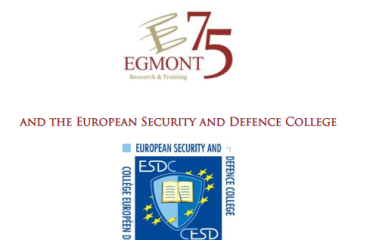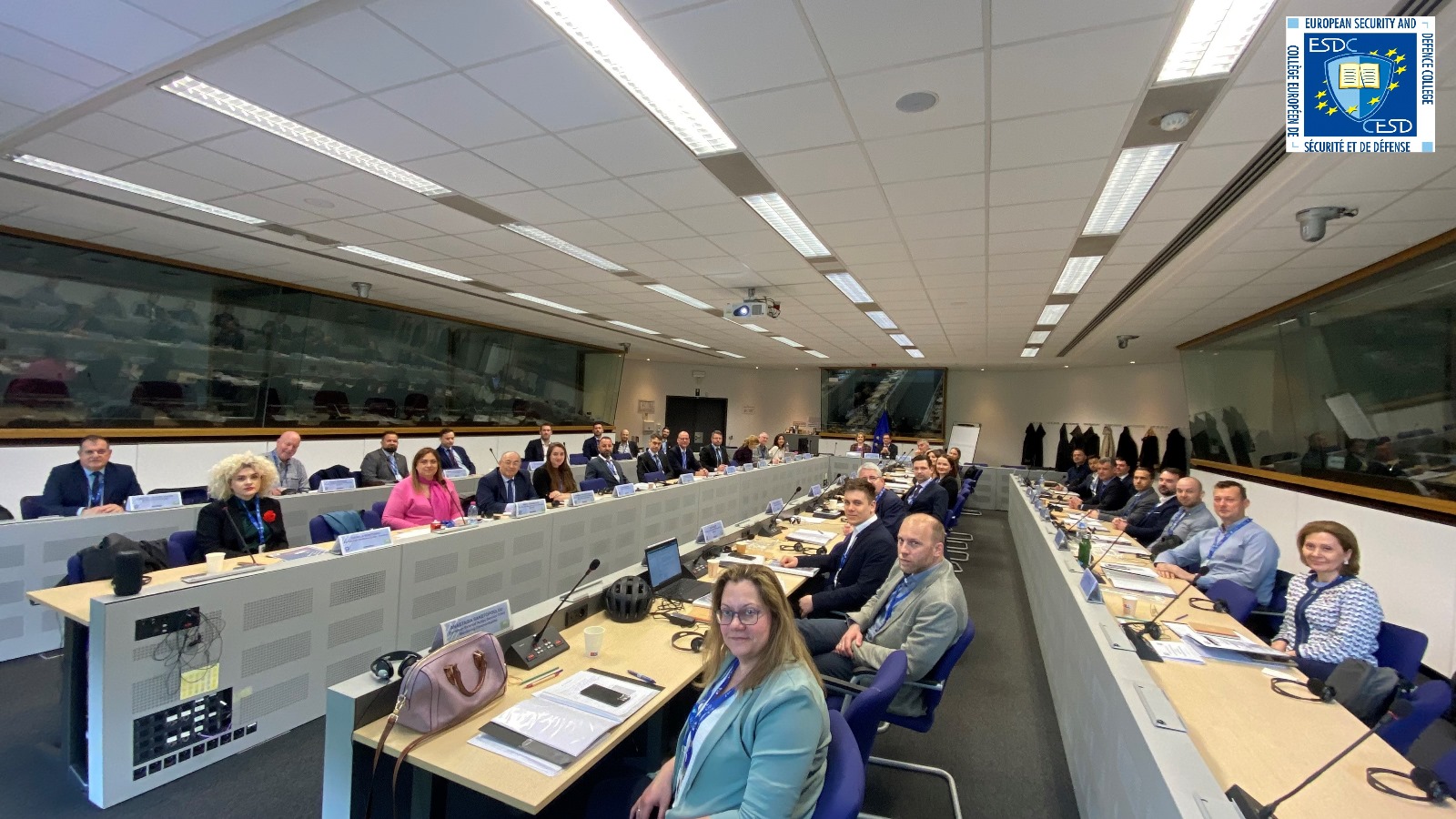 Co-organising this important pilot activity with the Institut de Formation d’Intelligence Interculturelle (IFDII), Paris, was a great opportunity for the ESDC. This pilot course both relates to the strategic objectives of the EU’s Cybersecurity Strategy for the Digital Decade and reflects the cyber priority of the EU’s Strategic Compass . Following approval by the ESDC, it could become part of the standard list of curricula approved by the 27 EU Member States.
The course was opened by Dr Claudine Korall, Director of the IFDII, and Mr Giuseppe Zuffanti, Coordinator for Cyber Issues and National Expert at the ESDC. They greeted the attendees, provided – respectively – a synopsis of the fundamentals of intercultural intelligence and an overview of the EU cyber ecosystem, and asked everyone present to introduce themselves.
Co-organising this important pilot activity with the Institut de Formation d’Intelligence Interculturelle (IFDII), Paris, was a great opportunity for the ESDC. This pilot course both relates to the strategic objectives of the EU’s Cybersecurity Strategy for the Digital Decade and reflects the cyber priority of the EU’s Strategic Compass . Following approval by the ESDC, it could become part of the standard list of curricula approved by the 27 EU Member States.
The course was opened by Dr Claudine Korall, Director of the IFDII, and Mr Giuseppe Zuffanti, Coordinator for Cyber Issues and National Expert at the ESDC. They greeted the attendees, provided – respectively – a synopsis of the fundamentals of intercultural intelligence and an overview of the EU cyber ecosystem, and asked everyone present to introduce themselves.
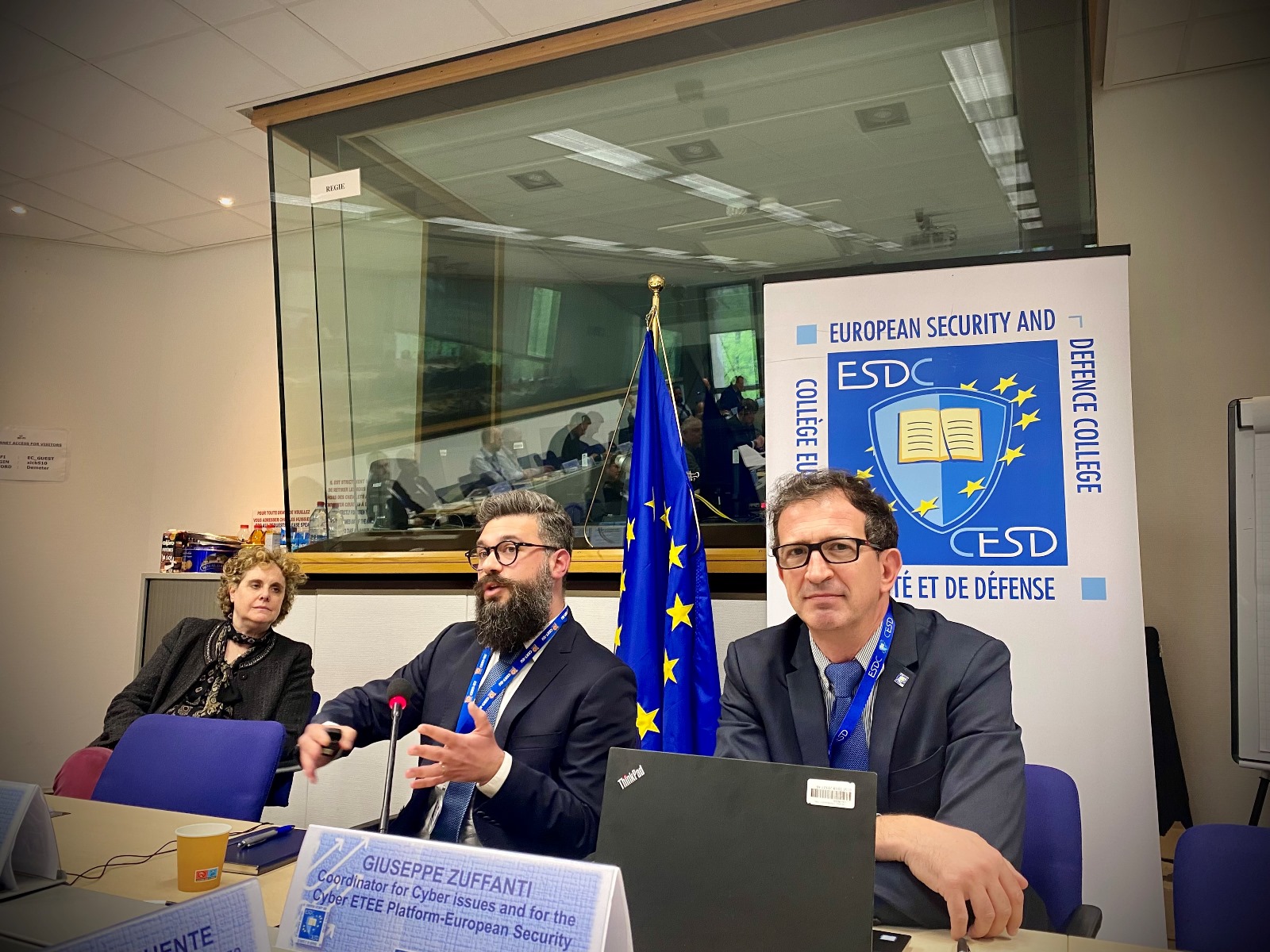
 The course gave participants an excellent opportunity to acquire skills relating to hybrid and cognitive warfare. This pilot activity fills a gap in the training market by allowing participants to acquire: 1) intercultural intelligence skills relating to strategic communication, which will enable them to work faster with allied forces; AND 2) the ability to decipher hidden messages, which is essential to countering hostile forces.
Furthermore, the course moves beyond classic communication and awareness training, enabling participants to organise their existing data, along with the knowledge they acquire during the course, in an unprecedented manner. Participants took part in a workshop on ‘Overt and Covert Strategic Communication’, a breakout session to improve ‘Listening for Understanding’ and a session on ‘Sharing Intercultural Strategic Communication Experiences’, with all those in attendance joining in the discussion.
The ultimate goal of the course was to provide Member States and EU institutions with personnel who are well-informed, have high levels of awareness and are equipped with cognitive and intercultural intelligence tools.
The course gave participants an excellent opportunity to acquire skills relating to hybrid and cognitive warfare. This pilot activity fills a gap in the training market by allowing participants to acquire: 1) intercultural intelligence skills relating to strategic communication, which will enable them to work faster with allied forces; AND 2) the ability to decipher hidden messages, which is essential to countering hostile forces.
Furthermore, the course moves beyond classic communication and awareness training, enabling participants to organise their existing data, along with the knowledge they acquire during the course, in an unprecedented manner. Participants took part in a workshop on ‘Overt and Covert Strategic Communication’, a breakout session to improve ‘Listening for Understanding’ and a session on ‘Sharing Intercultural Strategic Communication Experiences’, with all those in attendance joining in the discussion.
The ultimate goal of the course was to provide Member States and EU institutions with personnel who are well-informed, have high levels of awareness and are equipped with cognitive and intercultural intelligence tools.
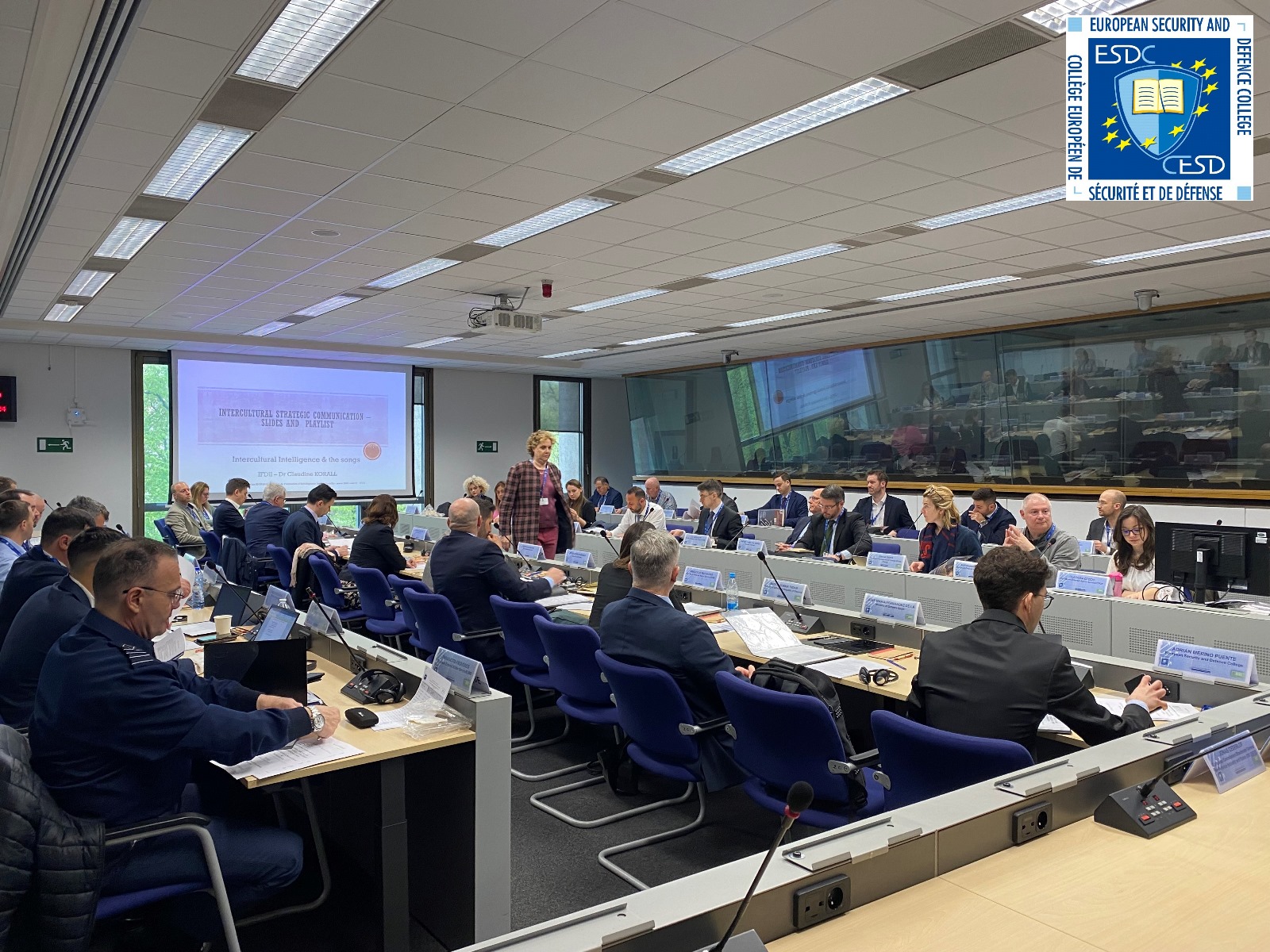
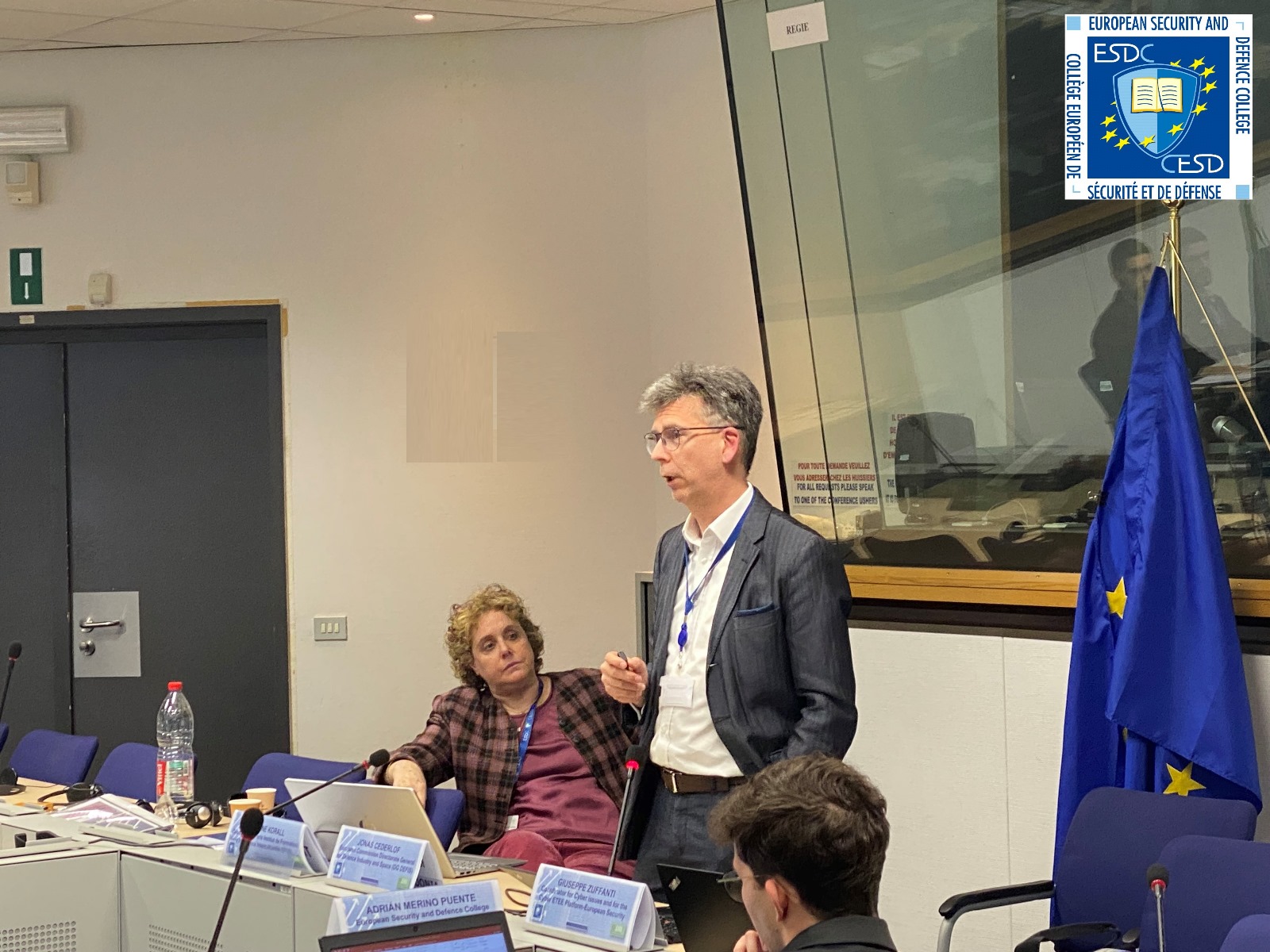 The ESDC would like to thank all the lecturers and specialists for their outstanding work, insightful advice and recommendations – namely all of the distinguished lecturers from the European Commission (DG-DEFIS), the European External Action Service (EEAS) and the Computer Emergency Response Team for the EU institutions, bodies and agencies (CERT-EU), as well as all of the distinguished speakers from Nevada University (USA) and ANS Analytics (Australia).
Special thanks also go to the course directors, the IFDII and all of the participants for their involvement and dedication.
The ESDC would like to thank all the lecturers and specialists for their outstanding work, insightful advice and recommendations – namely all of the distinguished lecturers from the European Commission (DG-DEFIS), the European External Action Service (EEAS) and the Computer Emergency Response Team for the EU institutions, bodies and agencies (CERT-EU), as well as all of the distinguished speakers from Nevada University (USA) and ANS Analytics (Australia).
Special thanks also go to the course directors, the IFDII and all of the participants for their involvement and dedication.
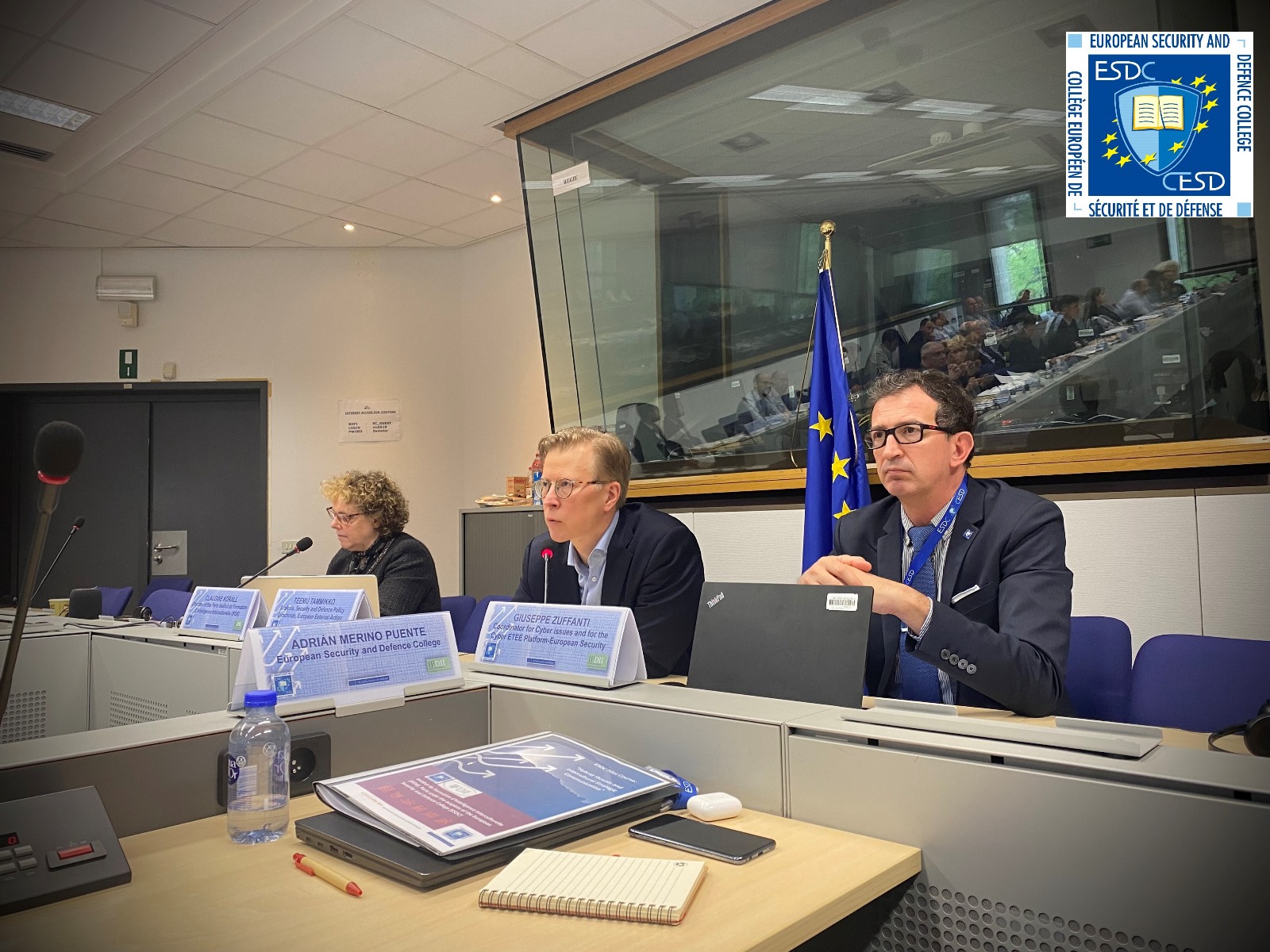
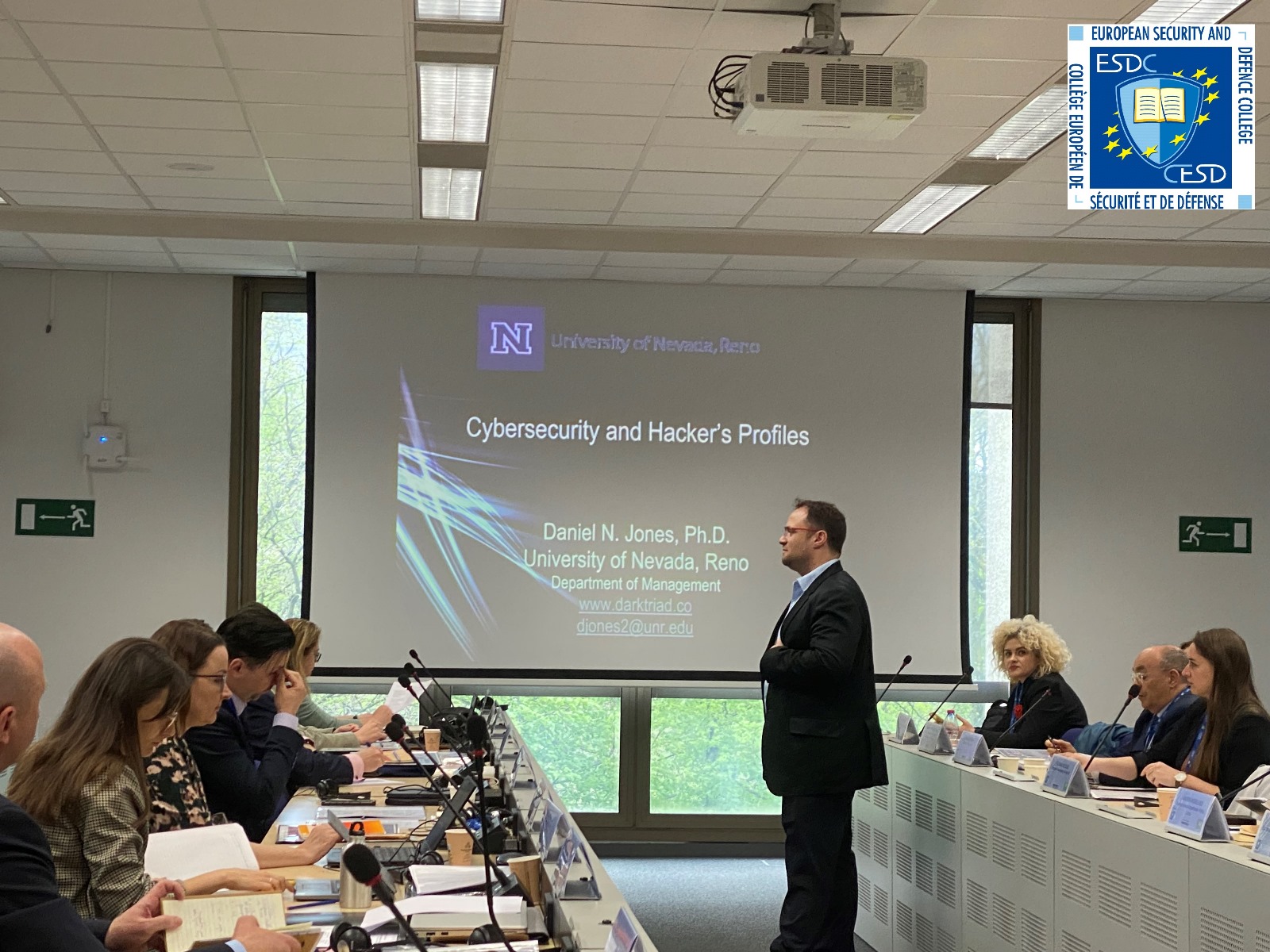 This cyber course is one of several cyber activities organised by the ESDC Cyber Education, Training, Exercise and Evaluation (ETEE) platform. The overall aim of the platform is to coordinate cybersecurity and defence training for civilian and military personnel, and to ensure all such training for EU Member states meets CSDP requirements. The platform deals with all domains of cybersecurity, including cyber crime, network information security, cyber defence and external relations.
This cyber course is one of several cyber activities organised by the ESDC Cyber Education, Training, Exercise and Evaluation (ETEE) platform. The overall aim of the platform is to coordinate cybersecurity and defence training for civilian and military personnel, and to ensure all such training for EU Member states meets CSDP requirements. The platform deals with all domains of cybersecurity, including cyber crime, network information security, cyber defence and external relations.
